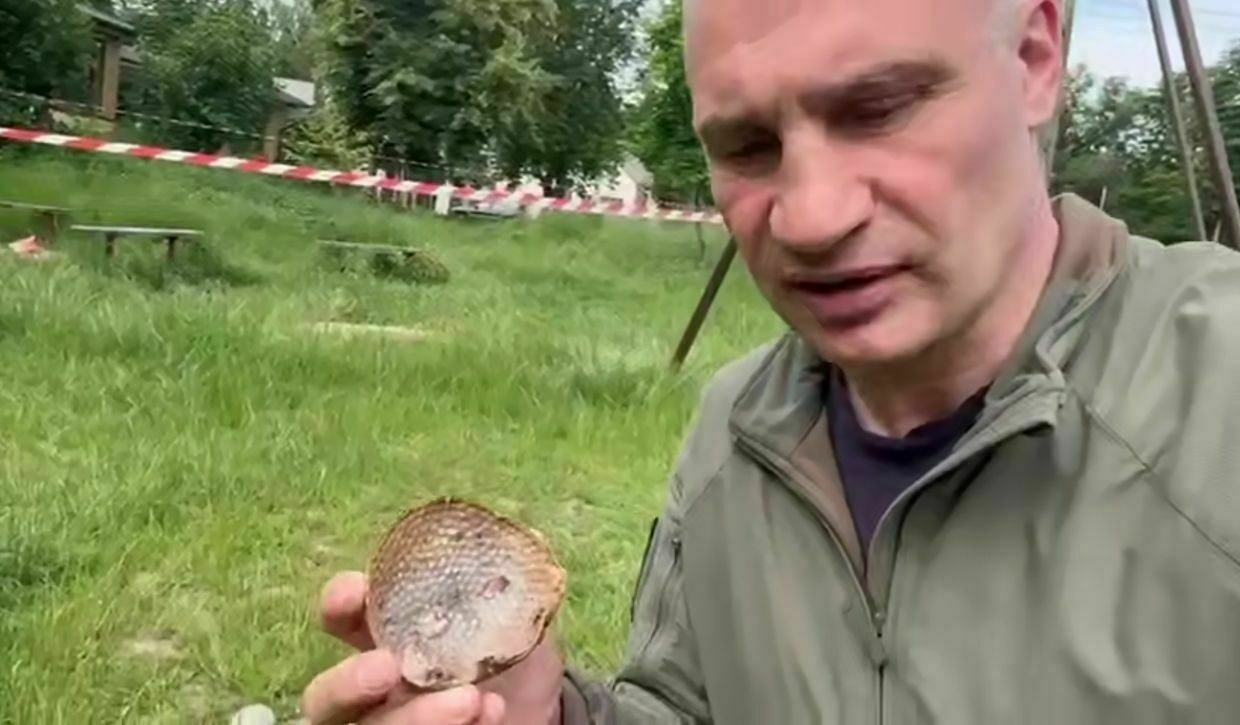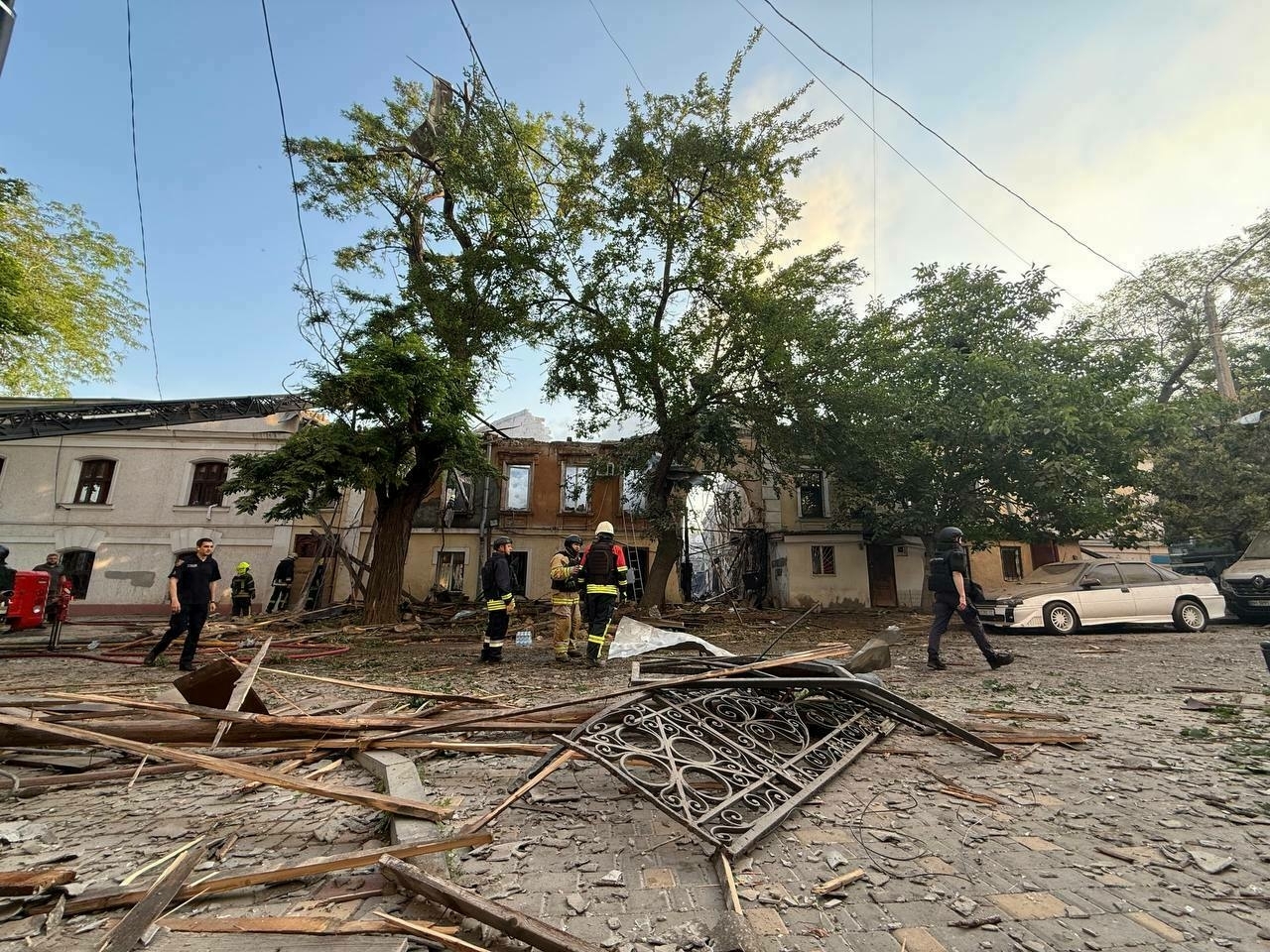
Emergency services in Kyiv have recovered fragments of cluster munitions following the overnight Russian missile and drone attack on June 17, Mayor Vitali Klitschko reported, calling it further evidence of Russia’s “genocide” against Ukrainians.
“In the capital’s Nyvky neighborhood, emergency workers are now finding these kinds of cluster munition parts,” Klitschko said in a statement shared on social media. “Another clear sign of the genocide Russia is committing against Ukrainians."
Cluster munitions are banned under international law by more than 100 countries due to their indiscriminate nature and the long-term threat they pose to civilians, especially when unexploded submunitions remain hidden in residential areas.
While Russia and Ukraine are not signatories to the Convention on Cluster Munitions, international humanitarian organizations have repeatedly condemned the use of such weapons in populated areas. Ukraine uses cluster munitions on the battlefield against Russian forces.
The mayor’s comments came hours after one of the largest and deadliest attacks on the Ukrainian capital in months, in which at least 15 people were killed and nearly 100 injured. The Russian strike, which lasted nearly nine hours, included waves of kamikaze drones, ballistic missiles, and what authorities now confirm were banned explosive parts.
President Volodymyr Zelensky called the assault “one of the most horrifying attacks on Kyiv,” saying more than 440 drones and 32 missiles were launched across Ukraine overnight.
“Such attacks are pure terrorism,” he said in a statement on social media. “And the whole world, the U.S., and Europe must finally respond as civilized societies respond to terrorists."
Zelensky confirmed that damage had been reported in eight districts of Kyiv, with emergency workers still searching for survivors beneath the rubble of a destroyed apartment block.
He added that strikes also hit Odesa, Zaporizhzhia, Chernihiv, Zhytomyr, Kirovohrad, Mykolaiv, and Kyiv regions. “Fifteen people are confirmed dead. My condolences to their families and loved ones,” Zelensky said.
Foreign Minister Andrii Sybiha also condemned the attack, calling it a “massive and brutal strike” timed deliberately to coincide with the G7 summit, which is taking place in Canada on June 16-17.
 The Kyiv IndependentLucy Pakhnyuk
The Kyiv IndependentLucy Pakhnyuk
